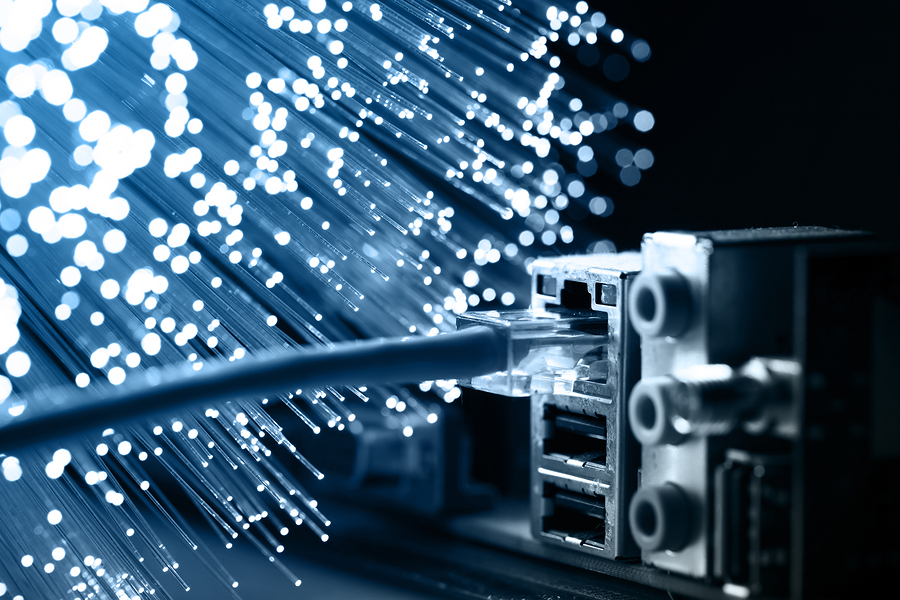
For well over a century, people have known that electricity can transfer both energy and information over vast distances. The movement of electrons creates energy that can move trains or power your smartphone, and by pulsing the signal an electric current can communicate the ones and zeros that are the foundation of every computer code.
However, science has come a long way since those first days when copper cables carried Morse code between telegraph stations. Fiber-optic cables don’t transfer energy, but instead they use photons to transfer information along special glass fibers. Using optical light, fiber-optic cables can send information at around two-thirds the speed of light, much faster than moving electrons. This lets the cables deliver more information with less lag, making it a superior choice to plain copper for things like transferring information between computers and speeding up broadband internet.
Fiber-optic cables have other advantages over copper, too. While the fibers are more sensitive to bending the cables, they don’t react to temperature or weather the way copper can. This means they have a steady signal, and they can last longer than copper cables if you treat them right. Since they don’t transfer electricity, fiber-optic cables are also unaffected by magnetic fields, interference, or power failures that happen outside of the two ends of the cable.
Because of all these benefits, most of the main internet lines are already using fiber-optic cables to connect the server farms where online information makes its home. These broadband internet cables help transfer the vast amounts of data that still grows every day, but in many cities the connections to homes still use the old copper cable connections that throttle internet speed and force neighbors and apartment buildings to share their connections and limit speeds even further.
Fortunately, a growing number of cities like San Antonio are getting fiber-based broadband internet connections that stretch straight from homes and businesses to the internet server farms. Thanks to fiber-optic cables, people can get online speeds of a gigabit per second, much faster than what a copper cable can manage, and with one of these connections you can stream 4k videos onto a big screen with no loss in quality and no buffering. If your home or workplace has access to a fiber connection, sign up today and find out what it’s like to have your information move at the speed of light.
